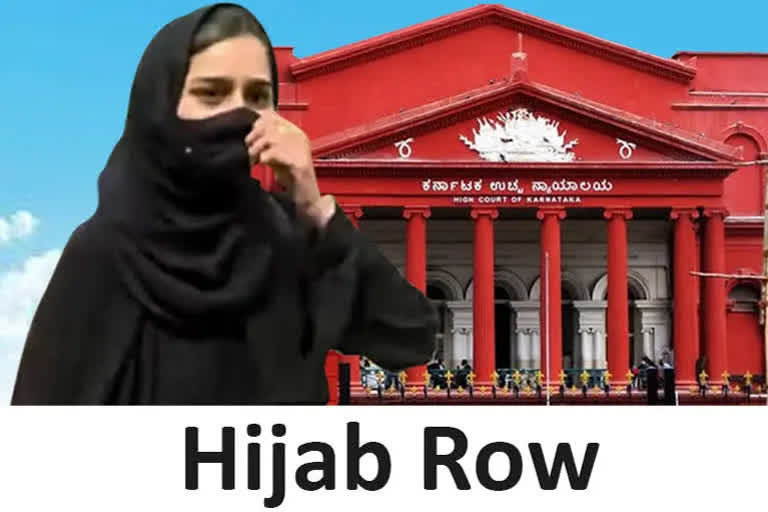Bengaluru: The Karnataka High Court on Monday resumed hearing on the controversial hijab row that has embroiled the state. The bench comprising Chief Justice Ritu Raj Awasthi and Justices Krishna S Dixit and JM Khazi had on February 10, directed the state government to open schools and barred the wearing of the hijab, saffron shawls, scarves in schools until the final directions from the court. The court will continue hearing the matter on Tuesday.
Here are 10 points from today's hearing
- Chief Justice Ritu Raj Awasthi to media as he began the hearing: "Let us make an effort to bring peace and tranquillity to the state. We all shall behave as responsible citizens".
- Sr Advocate Devadatt Kamat, appearing for the petitioners, called the Karnataka government's anti-hijab order that states that "wearing of a headscarf is not protected by Article 25" "erroneous". He also said that the government's decision to allow the College Development Committee (CDC) "consisting of MLA and subordinates" to decide whether to allow headscarves was totally illegal.
- Referring to a judgment by the Kerala HC in the AIPMT case wherein the court allowed wearing of Hijab for entrance test holding it to be an essential religious practice, Kamat said that such harmless practices, that a believer thinks are part of his faith and "does not by itself violate public order, or infringes anyone freedom" should be protected.
- On being asked when the students have been wearing hijab, Kamat informed the court that the students have been wearing the headscarf for the last two years, since their admission to the college.
- Kamat submitted that the students were not insisting on a different uniform but only want to cover the head with the same color of the uniform that is prescribed.
- "Kendriya Vidyalayas even today permit by a notification, that even though they have a uniform, Muslim girls are permitted to wear a headscarf of the uniform color," Kamat told the court.
- He told the court that allowing hijab for Muslim students is a national level practice same as allowing headgear for Sikh students. "This is in alliance with Article 25," Kamat added.
- Referring to the Shirur Mutt case and the Ratilal Gandhi case, Kamat said that matters of dress can form integral parts of a religion and no outside authority had any right "to restrict or prohibit them." Kamat said that the headscarf is an essential part of religion in the believer's view and thus, the state, which is an outside authority cannot say otherwise.
- Kamat said that the CDC cannot decide whether students can or cannot wear hijab as a College Development Committee does not have any statutory basis. Kamat called the state's decision to allow the CDCs to decide on hijab "a total abdication of state responsibility."
- Kamat informed the court that the hijab is an essential religious practice as it is stated in the Holy Quran and is hence protected by Article 25. "Since the Quran itself says so in respect of headscarf, we need not go to any other authority and this will be protected under Article 25," Kamat said.



